Use-Inspired Research Co-Created With Non-Academic Partners
Cornell Atkinson leverages our Innovation for Impact Fund (IIF) to build partnerships and consortia that co-create research agendas, execute unconventional projects between researchers and practitioners, and bridge the gap between scientific knowledge and action on the most important sustainability issues.
We support basic and applied research with a clear pathway to impact and an emphasis on actionable, near-term results. Our Strategic Partnerships team leverages the IIF to:
- Run competitive funding programs for collaborative proposals co-designed with our partners
- Facilitate strategic projects and initiatives co-designed with partners and executed by blended work teams of Cornell faculty, professional staff, and external collaborators
- Enable participation in multi-stakeholder consortia, such as CPIC, TSC, and Field to Market
IIF-supported interdisciplinary teams comprising academics and practitioners collaborate to develop actionable insights, demonstrate new concepts, design useful tools, pilot applications of scientific discoveries, and implement practices that can shape real-world policies and outcomes.
How to Apply
Eligibility:
- All Cornell PIs and CoPIs must meet Cornell’s principal investigator (PI) eligibility criteria
Calls for Proposals:
- The EDF – Cornell Atkinson Joint Research cycle is Closed
- The EDF-Cornell Atkinson Joint Postdoc Projects cycle is Closed
- The Cornell Atkinson-TNC cycle is Closed
IIF Projects:
Identifying Technology and Knowledge Gaps for Characterization of SuperHot Rock Geothermal Reservoirs to Better Inform Policy Pathways Toward New Research, Development, and Demonstration (CATF)
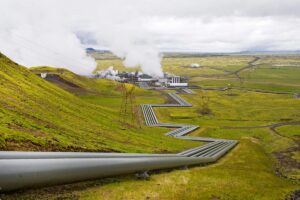
The project involves a collaboration between Cornell Atkinson Center for Sustainability and the Clean Air Task Force (CATF) to advance the development of SuperHot Rock (SHR) geothermal reservoirs. It aims to leverage existing knowledge and ongoing work to identify priority areas for federal research investments in SHR technology. The project will focus on summarizing state-of-the-art techniques, identifying knowledge gaps, and developing heat roadmaps.
Cornell Investigators: Seth Avram Saltiel, Earth & Atmospheric Sciences
CATF Investigator: Terra Rogers, Program Director, SuperHot Rock Energy
Strategic and Viable Interventions in Agricultural Greenhouse Gas Emissions Management for a Sustainable Food and Climate Future (EDF)

Cornell and EDF partners seek to understand the life-cycle greenhouse gas impacts of existing fertilizer production methods, and to assess emerging technologies to determine how they might help reduce runoff and climate impacts. Previous efforts have focused on industrial production of fertilizers or on-farm fertilizer practices. This project seeks to make a holistic assessment of impacts through the entire supply chain.
Cornell Investigators: Greeshma Gadikota, Civil & Environmental Engineering
EDF Investigators: Alison Eagle and Ramon Alvarez
Evidence-based Urban Greening Programs and Health: A Mixed Methods Approach to Improving Environmental Justice (EDF)

The research team plans to develop a framework to connect urban forestry initiatives to climate and community health outcomes. Using data from the National Weather Service and the New York State Department of Health, they will predict block-level ambient heat exposure in New York City from 2015-2022, and compare that to heat-related emergency department visits and hospitalizations. They’ll also conduct interviews with urban foresters, public health officials, community organizations, and other stakeholders to better understand the practical, economic, and policy-related considerations of urban tree planting.
Cornell Investigators: Arnab Ghosh, Weill Cornell Medical College; Dan Katz, School of Integrative Plant Science; and Qi Li, Civil and Environmental Engineering
EDF Investigators: Fiona Lo; Julia Gohlike; and Lesa Walker, EDF consultant
USDA Urban Forest Service: Alex Young
Valuation of Biodiversity and Ecosystem Services in the Agriculture-Conservation-Solar Energy Matrix (TNC)
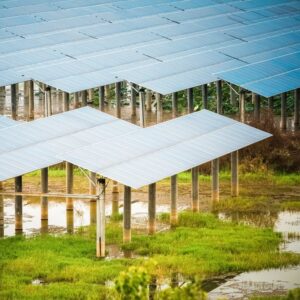
Solar energy provides a necessary means by which to mitigate climate change and to facilitate the energy transition from fossil fuels to renewable energy globally. However, solar energy development is a major driver of land-use change and there currently exist great potential for land-use competition between solar energy development and agriculture. This project will inform sustainable solar energy development in New York by elucidating key biodiversity and ecosystem-service based values of lands in the land-use matrix of agriculture, solar energy, and conservation.
Cornell Investigator: Steve Grodsky, Natural Resources and the Environment
TNC: Liz Kalies
Evaluation of State and Federal Policies for Impact on Water Quality (TNC)
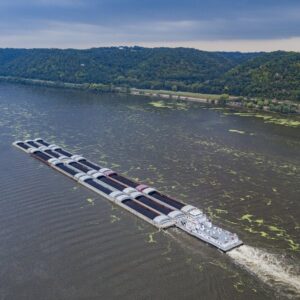
Despite decades and billions of dollars to support conservation, nutrient loads continue to increase while adoption of conservation practices remains relatively low, limiting the ability to meet freshwater biodiversity goals in keystone basins such as the Mississippi River and Great Lakes. This collaboration brings together expertise in policy and environmental economics at Cornell University and the University of Minnesota (UMN), with the on-the-ground expertise and relationships of TNC in conservation delivery and state legislative engagement.
Cornell Investigator: Cathy Kling, Dyson School
UMN Investigator: Bonnie Keeler
TNC: Randy Dell
Manure Mesocosms: Test Systems to Inform Sustainable Dairy Manure Management (TNC)
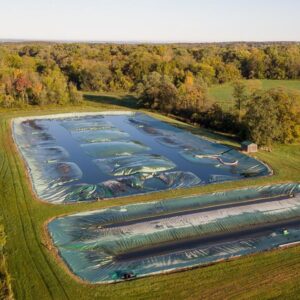
The intensification of dairy operations has improved the efficiency of dairy production and increased the production of high-quality milk, but has also led to unintended environmental impacts, like increased greenhouse gas emissions. As livestock production continues to intensify there is increasing need to evaluate scalable, low-capital cost solutions that improve the sustainable management of manure in long-term storage. The researchers will establish dairy manure mesocosms where manure additives, manure treatments, and management can be experimentally evaluated for their ability to reduce emissions from long-term manure storage and their economic feasibility. They will leverage this partnership with TNC to expedite the rollout of practical solutions.
Cornell Investigators: Jason Oliver, Animal Science; Lauren Ray, Animal Science
TNC: Alisha Staggs, Partha Ray
The Climate Change Housing Deficit: A Scalable Tool to Justify Zoning Reforms in Flood-Prone Areas (IIF Momentum Funding)
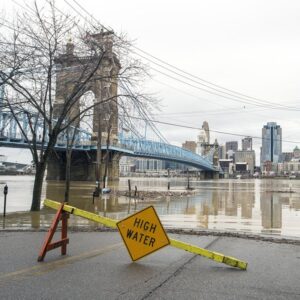
As the global climate crisis accelerates, the nation’s developed waterfronts are at particular risk from its worsening impacts. More than one million people in the tri-state metropolitan region currently live in flood-prone areas, about half in dense urban areas – that total number is expected to double by 2050. About one-third of this at-risk population lives in conditions that make them especially vulnerable, including those with low-incomes, non-native English speakers, the elderly, and the very young. The researchers will to conduct a collaborative research and advocacy project to better understand the impacts of climate change on housing stock in New York City, Long Island, and Westchester County; develop actionable and scalable policy solutions to create more housing in climate-appropriate locations; and create a communications and advocacy strategy to implement proposed policy solutions.
Cornell Investigator: Sara Bronin, City and Regional Planning
Regional Plan Association: Melissa Kaplan-Macey, Moses Gates, Robert Freudenberg
Scaling the Biodiversity Progress Index to Central America (IIF Momentum Funding)

This project will develop and provide accessible, country-specific data products on biodiversity that meet local information needs, inform policy, and engage conservation decision-makers across Central America.
Cornell Investigator: Courtney Davis, Lab of Ornithology
Integrating Policy, Finance, and Hyperlocal Building Energy Modeling (IIF Momentum Funding)
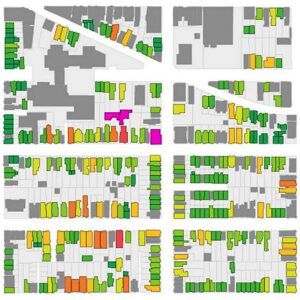
In 2020, buildings and construction accounted for 37% of global greenhouse gas emissions. Their decarbonization is an urgent, massive, cross-disciplinary challenge that requires immediate attention to limit the adverse effects of climate change. The researchers will create a novel methodology for scenario-driven urban energy simulations, incorporating future climate, finance, policy models, and sustainable technology adoption predictions to deliver a web-browser-based planning tool tailored to city stakeholder needs.
Cornell Investigator: Timur Dogan, Architecture
RMI: Stephen Abbott, Ryan Shea, Jingyi Tang
Understanding the Spread of Aedes aegypti Mosquitoes and Dengue Virus in the Peruvian Amazon to Effect Positive Public Health Change (IIF Momentum Funding)
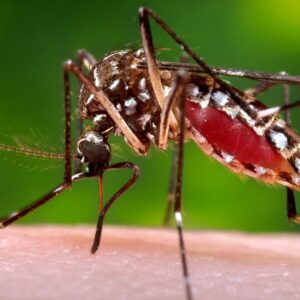
Aedes aegypti is an invasive mosquito species with a wide distribution around the world. It is the main vector of several diseases, including dengue, a viral infection causing severe disease, and nearly 40,000 deaths per year. In the northern Peruvian Amazon, these mosquitoes have increasingly developed insecticide resistance. This project will engage community health workers in the interpretation of resistance data, train them on mosquito-borne diseases, and translate related scientific publication(s) into Spanish.
Cornell Investigator: Laura Harrington, Entomology
ClimateRice Initiative (IIF Momentum Funding)
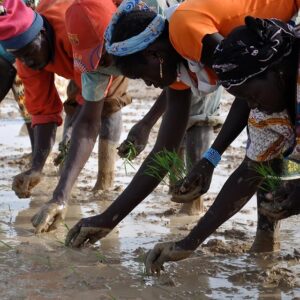
To successfully address climate change, we must rapidly adopt a different approach to growing rice, a daily staple for more than half of the world’s population. Rice accounts for 12% of anthropogenic methane emissions and 33% of global freshwater withdrawals. System of Rice Intensification (SRI) is a proven alternative for rice farming, and is practiced today in more than 60 countries by about 5% of rice farmers. ClimateRice is a collaborative initiative between Cornell’s Climate-Resilient Farming Systems Program, Department of Global Development at Cornell CALS and CarbonFarm, a technology start-up developing an innovative satellite-based carbon finance mechanism for rice.
Cornell Investigator: Erika Styger, Global Development
CarbonFarm: Vassily Carantino
Streamlining Assessment of Enteric Methane Inhibiting Drugs & Feed Additives for FDA Approval (EDF Impact Grant)
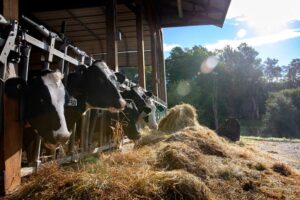
Researchers are working collaboratively to address key barriers to timely adoption at scale of animal drugs and food additives that reduce methane production. This project will leverage Cornell expertise in livestock nutrition and management, available research and research capacity, and experience with regulatory approval requirements, plus EDF proficiencies in stakeholder collaboration and policy advocacy to address barriers related to regulatory approval.
Cornell Investigators: Mike Van Amburgh, Animal Science; Daryl Nydam, Population Medicine + Diagnostic Sciences; Thomas Overton, Animal Science; Joseph McFadden, Animal Science; Kristan Reed, Animal Science; Jefferson Tester, Chemical + Biomolecular Engineering; Robert Howarth, Ecology + Evolutionary Biology; Peter Wright, Animal Science; Xingen Li, Animal Science
EDF Investigators: Katie Anderson, Holly Pearen, and Daniel Kaiser
Deploying Novel Sensor Technology and Proven Data Analytics to Assess Fugitive Emissions from the Hydrogen Supply Chain (EDF Impact Grant)
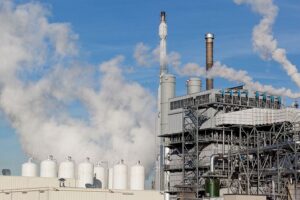
The extensive use of hydrogen is seen as a key strategy to achieve large-scale decarbonization. However, hydrogen (H2) is a potent and short-lived indirect greenhouse gas in addition to being highly flammable. H2 in the atmosphere can warm the climate indirectly by extending the lifetime of methane, triggering reactions that form tropospheric ozone, and breaking down into water vapor in the stratosphere. Researchers will assess the immediate impact on the critical societal need of assessing fugitive emissions from the hydrogen supply chain with new tools to measure hydrogen and methane emissions, as well as supply chain impacts.
Cornell Investigators: John Albertson, Civil & Environmental Engineering; Greeshma Gadikota, Civil & Environmental Engineering
EDF Investigators: Tianyi Sun and Ilissa Ocko
Understanding Urban Landscape Effects for More Actionable Hyperlocal Air Pollution Estimates (EDF)

Improving air quality in cities in the U.S. and worldwide is one of the key aspects of building sustainable and healthy communities. Researchers will harness data collected by Google Street Maps to assess air pollution at the pedestrian level. After the first year, this research will establish the foundation for several future research directions.
Cornell Investigator: Qi Li, Civil & Environmental Engineering
EDF Investigators: Lauren Padilla and Tammy Thompson
Updating Global Spatial Datasets of Livestock Production and Greenhouse Gas Emissions (EDF)

Overconsumption of animal source foods has led to significant environmental issues and health problems. This project will create a framework for using machine learning to constantly update a global livestock production and emissions dataset, first developed by Mario Herrero (Global Development, Cornell) and partners over fifteen years ago. The updated datasets will provide timely and relevant information to inform sustainability-related policy. Herrero and Joe Rudek (EDF) will lead the research.
Cornell Investigator: Mario Herrero, Global Development
EDF Investigator: Joe Rudek
Cooperative Strategies for Just and Ecological Adaptation to Flooding in New York City (EDF)

Federal funding for post-disaster response and climate adaptation favors single-family housing, challenging support for the multifamily housing that characterizes most of where people of color live. Low-income housing, especially for racialized minorities, is often sited in less desirable, flood-prone areas. Silos among researchers and practitioners working on climate adaptation and those working on housing and advocacy impede the design of just and ecologically adaptive housing strategies. Researchers will assist the new NYC Mayor’s Office of Climate and Environmental Justice in connecting housing advocacy groups, community organizations, academics, and government staff to develop strategies for more equitable flood relief.
Cornell Investigators: Linda Shi, City and Regional Planning
Rebecca Morgenstern Brenner – CIPA/School of Public Policy – co-PI
Sara Bronin – AAP – co-PI
EDF Investigator: Kate Boicourt
Community-driven Air Quality Advocacy in Manhattan Chinatown (EDF)

Despite the disproportionate pollution and death rate from COVID that East Asian immigrants experienced in NYC, they are among the least involved in environmental protection initiatives. Researchers will explore how cultural norms and tensions among Chinese immigrant sub-groups shape community advocacy in environmental protection efforts. They will conduct interviews and develop relevant messaging in multiple languages to be used as a basis for conversations around air quality issues in Chinatown and future outreach programs.
Cornell Investigator: Y. Connie Yuan, Communications and Global Development
EDF Investigator: Rainer Romero-Canyas
Other: Cindy Lin, Former Cornell Atkinson Postdoc (now at Penn State University)
Investigating the Financial Impact of Extreme Weather on Midwestern Farmers over Time and by Farming System (EDF)
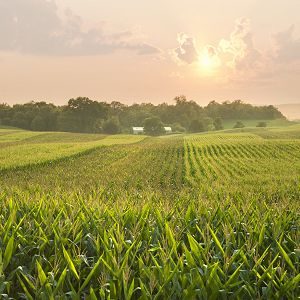
Researchers will quantify the effect of variable weather and climate change on farm financial performance, using long-term local data from the Kansas Farm Management Association. The resulting analysis will inform the risk that agricultural lenders face from climate change and the role of lenders in supporting a transition to more resilient farming practices and systems. The researchers plan to engage agricultural lenders for feedback on their analysis in a conference panel on climate change and agricultural financial risk.
Cornell Investigators: Ariel Ortiz-Bobea, Dyson School
EDF Investigators: Maggie Monast, Director of Working Lands; Vincent Gauthier; Dave McLaughlin, Economist
Other: Jenny Ifft, Kansas State University
Addressing Equity in the Army Corps Cost-benefit Analysis Methodology for Flood Protection Infrastructure (EDF)
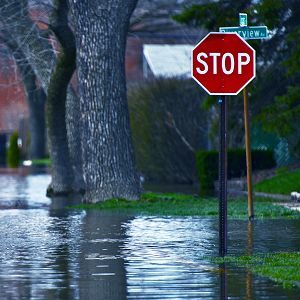
This research project will provide evidence on and solutions to the inequity created by applying a strict cost-benefit analysis in the provision of federal flood protection infrastructure. Environmental justice communities–communities with high-flood risk, increased vulnerability, and whose populations are often predominantly Black, Indigenous, and people of color (BIPOC)—tend to have lower property values that are less likely to justify recovery costs within this strict application of a cost-benefit analysis framework. This project aims to protect some of our country’s most vulnerable residents and communities from the increasing risk of flooding. Research partners will convene a workshop with community leaders and academics to develop a revised cost-benefit analysis methodology that incorporates equity into federal flood protection programs.
Cornell Investigators: Todd Gerarden, Dyson School
EDF Investigators: Dave McLaughlin, Economist
Capturing Young Children’s Comprehension and Emotional Reponses to Climate Change (EDF)

Researchers will examine attitudes and behaviors among young children regarding global climate change (GCC), to assess their understanding and how it makes them feel. The researchers will then develop GCC curriculum guidelines for early childhood educators, in collaboration with Mom’s Clean Air Force and Co-Operative Extension – 4-H. These guidelines will describe what aspects of GCC young children can comprehend and how they respond emotionally to GCC.
Cornell Investigator: Gary Evans, Design and Environmental Analysis
EDF Investigator: Elizabeth Brandt Regional Field Manager, Mom’s Clean Air Force; Rainer Romero
RuFaS (Ruminant Farm Systems) Dairy Model (IIF Momentum Funding)
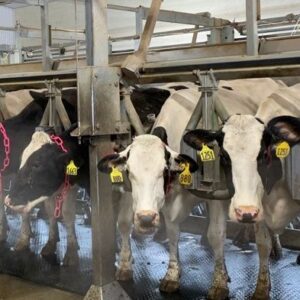
Cornell researchers are conducting a thorough, scientifically sound evaluation of the Ruminant Farm Systems (RuFaS) model, which provides an evolving model ecosystem to guide dairy farm decision-makers on paths toward sustainable dairy production.
Cornell Investigators: Kristan Reed (CALS/ANSC), Fengqi You (ENG/CHEME), Johannes Lehmann (CALS/SCS), Dominic Woolf (CALS/SCS), Quirine Ketterings (CALS/ANSC), Curt Gooch (CALS/BEE)
Dairy Management Inc. (DMI) Investigator: Juan Tricarico
General Mills Investigator: Jim Eckberg
RuFaS Exec Team: Hector Hernandez (SDSU), Ermias Kebreab (UC Davis), Greg Thoma (U of Arkansas), Jennie Popp (U of Arkansas), Victor Cabrera (UW Madison), Jennifer Van Os (UW Madison), Peter Vadas (USDA), Kevin Panke-Buisse (USDA-ARS)
WWF Investigator: Melissa Ho
TNC Investigator: Kelly Racette, Steve Richter
Valley Ag Software Investigator: Jordan Kraft, Robin Jacobs
Cayuga Milk Ingredients Investigator: Kevin Ellis, Julia Smith
Producers: Doug Young (NY), Steve Maddox (CA), Bill Wavrin (WA)
Pandemic Prevention Policy Analysis (IIF Momentum Funding)

Building on the momentum of a successful 2021 joint event with the World Wildlife Fund (WWF), “Emerging Disease, Wildlife Trade, and Consumption: The Need for Robust Global Governance—Exploring Ways to Prevent Future Pandemics,” Cornell Atkinson will fund a postdoctoral researcher with specific strengths in policy and legal analysis, to engage with WWF and other NGOs to assess high-level governance gaps inhibiting progress on this issue.
Cornell Investigator: Steve Osofsky
World Wildlife Fund (WWF)
Repair and Redress: Growing the Repertoire of Community-led Climate Justice (AVF Supplement)
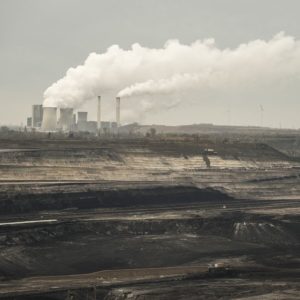
This project provides additional support for the 2021 AVF, Expanding the Repertoire of Community-led Climate Justice Practices, supporting collaborations with three groups of external experts: one with situated and intimate knowledge of the effects of environmental change in concrete places and communities; one working actively on generalizable methods and techniques; and one looking to imagine new models of community and justice in a climate-disrupted world.
Cornell Investigators: Christopher Csikszentmihalyi (Information Science), Phoebe Sengers (Information Science), and Steven Jackson (Information Science)
External Collaborators: Public Laboratory for Open Technology and Science, Public Accountability Initiative, The Environmental Data & Governance Initiative (EDGI)
Participatory Forest Restoration and Community-based Monitoring in Malawi (AVF Supplement)

This project provides additional support for the 2021 AVF Climate Change Preparations Informed by Local Forest Inventories, supporting a collaboration with Soil, Food and Healthy Communities (SFHC), a Malawian non-profit organization that has trained thousands of farmers and vulnerable groups in agroecological practices over the past 20 years, and which is currently facilitating the AVF-funded participatory forest inventory and climate change scenarios project.
Cornell Investigator: Rachel Bezner Kerr (Global Development)
External Collaborators: Soil, Food and Healthy Communities (SFHC); Lilongwe University of Natural Resources and Agriculture; Scientists from Mzuzu University, Germany, and Norway; and Belmont Forum/NSF-funded FARMS for Biodiversity
Sprouted Grains Grown Using Hydroponic Technology: Effects on Milk Production Efficiency and Nutrient Utilization in Dairy Cattle (AVF Supplement)

This project provides additional support for the 2021 AVF, Increasing Milk Production and Reducing Greenhouse Gas by Feeding Cows Hydroponic Sprouts, to support two student interns from Tuskegee University to work with staff from Grōv and the AVF team to operate the hydroponic grow system and manage fodder growth, which will involve monitoring and controlling grow condition protocols.
Cornell Investigators: Joseph McFadden (Animal Science), Neil Mattson (Horticulture), Kristan Reed (Animal Science), and Mike Van Amburgh (Animal Science)
External Collaborator: Dr. Olga Bolden-Tiller (Tuskegee University)
Strategies for Climate-Ready Fishing Communities: Optimal Fishing Portfolios for Changing Ocean Ecosystems (TNC)
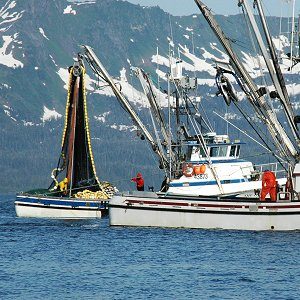
Climate change is shifting where marine species can live, particularly in high latitude oceans. As a result, fishing communities face increasing threats to their economies and cultural heritage while they also risk losing fishing access under changing marine management. How can communities maintain access to commercial fishing resources in the face of climate-driven ocean changes? Focusing on Alaskan fisheries, this team will seek to assess the amount of climate risk facing fishing communities, identify balanced community fishing rights portfolios that are responsive to climate-driven fishery changes, and create innovative finance opportunities to support climate adaptation strategies for fishing communities. The project will integrate ongoing conservation finance efforts at Cornell and TNC, in hopes of attracting capital for community-based lending programs to assist fishing communities with climate adaptation.
Cornell Investigators: Suresh Sethi, Natural Resources; Alex Flecker, Ecology and Evolutionary Biology; Carla Gomes, Computer Science; John Tobin-de la Puente, Dyson School
TNC Investigators: Adrianna Muir, TNC Alaska; Kate Kauer, TNC California; Rich Bell, TNC North America
Assessing Progress and Barriers to Ecological Restoration of State Property Buyout Programs (TNC)
Nationwide, more than 13 million homes are located in floodplains and 2.5 million properties will likely be chronically inundated by 2100. After each disaster, pundits debate whether communities should “give parcels back to Mother Nature,” as Governor Cuomo said after Hurricane Sandy. Over the last decade, several states have developed buyout programs, but no studies have systematically compared and analyzed them. This team will study programs in five states (New York, New Jersey, Florida, Texas, and Washington) that have created buyout programs which are promising from community and ecological health perspectives. They will then work with state program officers, TNC staff, and Cornell faculty and students to jointly identify specific research goals, concerns, data needs, case study sites, and research outputs, enhancing the likelihood of success.
Cornell Investigators: Linda Shi, City and Regional Planning; Amelia Greiner Safi, Master of Public Health Program; Rebecca Morgenstern-Brenner Cornell Institute for Public Affairs, Jamie Vanucchi, Landscape Architecture
TNC Investigators: Anna Brown, TNC North America Climate Adaptation Lead; Christine Shepard, TNC Director of Science; Marci Bortman, NY Director of Climate Adaptation
Soil Health Assessment, Management, and Policy to Support Sustainable Land Management in China (TNC)
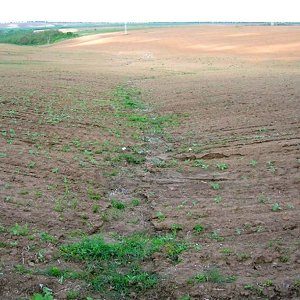
Compared to the United States, China has much less agricultural land, by area. China’s grand challenge is to sustainably feed more than 1/6th of the world’s population on less than 1/14th of the world’s arable land area, while resources diminish and the climate changes. In order to ensure future food, water, and energy security, the health of China’s soils must be improved. Soil assessment methods in China currently focus on production-oriented management, rather than sustainable ecosystem services. Cornell University is a pioneer in soil health education, research programs, and methodologies for soil health assessment. This team proposes to adapt the Cornell framework for Chinese production environments, which will be essential for the holistic assessment of soil functioning, identification of sustainable management solutions, prioritizing TNC program efforts, and informing policy for different stakeholders.
Cornell Investigators: Harold van Es, Soil and Crop Sciences; Rebecca Schneider, Natural Resources; Joseph Amsili, Cornell Cooperative Extension
TNC Investigators: Yi Ling, TNC China Program; Nan Zang, TNC China Program; Junling Zhang, China Agricultural University
Agricultural Burning in India (AVF Supplement)
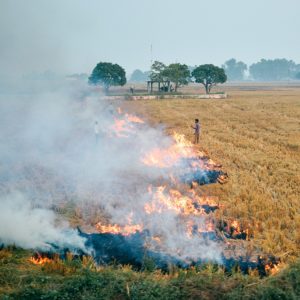
This project provides additional support for the 2020 AVF Bending Agricultural Burning Trajectories in Eastern India, enabling engagement with the International Rice Research Institute (IRRI) to integrate a gender component in the research.
Cornell Investigator: Andrew McDonald (CALS/CSS)
External Collaborator: International Rice Research Institute (IRRI)
Antibacterial Resistance, Ithaca Drinking Water (AVF Supplement)

This project provides additional support for the 2020 AVF Antibacterial Resistance in Ithaca’s Drinking Water, enabling the participation and engagement of three external partners, to explore more advanced drinking water treatment technologies, coordinate with external researchers, enhance local drinking water testing, and translate the research results and outcomes into a public-friendly format.
Cornell Investigator: April Gu (Civil and Environmental Engineering)
External Collaborators: Sustainable Water Initiative for Tomorrow (SWIFT): Charles B. Bott, Water Research Foundation (WRF): John Albert, Ithaca Drinking Water Treatment Plant
Equipping K-12 schools in COVID-19 (AVF Supplement)

This project provides additional support for the 2020 AVF Reducing Healthcare Workers’ Risk From Disease Spread, to work with School in the Square (S2), and independent public charter school in Manhattan, as a test site to develop science-driven, school-specific strategies to mitigate virus transmission in indoor environments through an integrated monitoring and modeling approach.
Cornell Investigators: Max Zhang (Mechanical and Aerospace Engineering), Nathaniel Hupert (Population Health Sciences)
External Collaborator: School in the Square (S2)
Coalition for Private Investment in Conservation (EDF Impact Grant)

The Coalition for Private Investment in Conservation (CPIC) manages over a dozen completed investment blueprints, many developed with support from the PwC consulting team working with CPIC thematic working groups per Cornell Atkinson a conservation finance grant.
Cornell Investigator: John Tobin-de la Puente (JCB/Dyson)
Coalition for Private Investment in Conservation (CPIC)
Reduction of Heavy Metals in Infant and Toddler Foods (IIF Impact Funding)

Because of the health benefits of fruits and vegetables, there has been an increasing tendency to add fruits and vegetables into infant and toddler foods. However, the potential risk of high heavy metal contents in fruits and vegetables due to their natural exposure to soil/water, and pesticides, is a significant concern. The Baby Food Council, a collaboration among Cornell University and a group of infant and toddler food companies, seeking to reduce heavy metals in the companies’ products, provided primary support for a project to evaluate the best management practices to reduce harmful heavy metals in infant and toddler food. Cornell researchers will determine the contents of heavy metals, such as Lead, Cadmium, Arsenic, and Mercury; and assess the effects of processing and facilities on heavy metals in the final products.
Cornell Investigator: Rui Hai Liu (CALS/FS)
EDF Investigator: Tom Neltner (Chemicals Policy Director)
Tracing Aquaculture Feed Sources to Guide Mitigation of Biodiversity and Pollution Impacts (EDF)
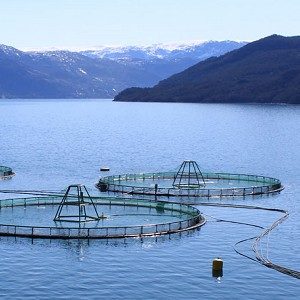
Aquaculture is the fastest growing source of animal protein to feed humanity. Its exponential expansion is fueled by harvesting of wild fish, which are reduced into fishmeal and oil that are critical ingredients in pelleted feeds. Intensive fishing has contributed to collapse of many stocks, yet market demand to feed both people and farmed fish is expected to continue growing, and could lead to widespread alteration of marine food webs. At the same time, intensive fish farming is creating further pollution of rivers, lakes, and coastlines. These diverse impacts of aquaculture require new mitigation strategies to safeguard marine biodiversity and human food security. Our vision is to use genetic tracking of fish sources and mercury isotope tracing of contaminants to reveal what types of intervention would most enhance aquaculture sustainability.
Cornell Investigators: Peter McIntyre, Natural Resources; Nina Therkildsen, Natural Resources
EDF Investigators: Tim Fitzgerald, Oceans Program
Can Wind and Solar Save the Amazon? An Analysis of Energy System Feasibility and Economic Costs (TNC)

While hydropower provides the majority of current renewable energy electricity production, and it is a reliable and mature renewable energy technology, it also has negative impacts on freshwater systems and livelihoods. This project will assess the feasibility to “repower” energy systems by integrating greater proportions of low-impact wind and solar renewable energy, create a country dashboard tool for low impact energy provisioning portfolios, and develop general principles for understanding thresholds of intermittent low-impact wind and solar to meet existing and future energy demands.
Cornell Investigator: Eilyan Bitar, Electrical and Computer Engineering
TNC Investigators: Joe Kiesecker, Lead Scientist – Global Lands; Sharon Baruch-Mordo, Spatial Scientist – Global Lands
Modeling Sound Attenuation and Individual Space Usage to Estimate Density of Animal Populations (TNC)
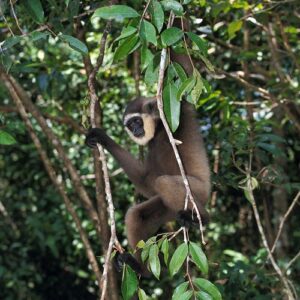
Population density is a common way to assess the health of a species in an area. Passive acoustic monitoring can provide reliable population density estimates for some species, but it often requires human interpretation of data. This project will further automate data analysis and incorporate new statistical models to improve density estimates of endangered gibbons in Borneo.
Cornell Investigators: Angela Fuller, Natural Resources and the Environment; Holger Klinck, Lab of Ornithology
TNC Investigators: Dr. Edward Game, Lead Scientist – Asia Pacific Region; Mohamad Rifqi, Primatologist – Indonesia Program
Size of the Prize: Establishing Soil Carbon Sequestration Potentials (TNC)
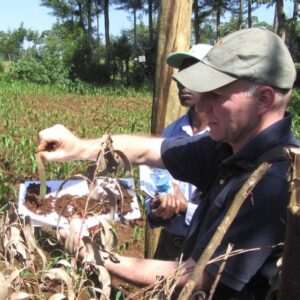
The role of soil organic carbon in global carbon cycles is receiving increasing attention both as a potentially large and uncertain source of CO2 emissions in response to rising global temperatures and as a natural sink for carbon that can reduce atmospheric CO2. This project will create decision support tools to help stakeholders–such as Ethiopia, Kenya, and Guinea as well as the African Development Bank and The World Bank–to achieve their goals in optimizing soil carbon sequestration while improving other soil ecosystem services such as food security, energy production, and the availability of clean water. The researchers will initially target select countries such as Ethiopia, Kenya, and Guinea as well as the African Development Bank and The World Bank.
Cornell Investigators: Johannes Lehmann, Soil and Crop Sciences; Jonathon Schuldt, Communications; David Wolfe, Horticulture; Dominic Woolf, Soil and Crop Sciences
TNC Investigators: Deborah Bossio, Lead Soil Scientist; Stephen Wood, Senior Scientist – Agriculture and Food Systems; Priya Shyamsundar, Lead Economist
